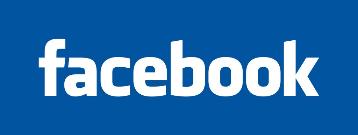Is Facebook the Next Google? - Jerry Weinstein

Facebook's new platform opening the site to all-comers might be new to the marketplace, but Marc Canter, late of Macromedia, has been touting its basic ideas for some time. The CEO of Broadband Mechanics came up with the concept of Digital Lifestyle Aggregators (or DLAs) some time ago and has since remarked that Facebook is the first Web property to embody its ideas.
Originally published June 13, 2007
Facebook's new platform opening the site to all-comers might be new to the marketplace, but Marc Canter, late of Macromedia, has been touting its basic ideas for some time. The CEO of Broadband Mechanics came up with the concept of Digital Lifestyle Aggregators (or DLAs) some time ago and has since remarked that Facebook is the first Web property to embody its ideas.
Comparisons of Facebook to MySpace have become instantly passé. Instead, industry-watchers are asking if Facebook is the next Google. If you're involved in building a consumer-facing Web site, the Facebook model is so powerful you might instead consider applying your energies to a Facebook app. It offers developers building blocks, faster access to a rich source of data and capabilities otherwise unavailable, brand exposure opportunities, deep integration throughout Facebook, and revenue opportunities that make Facebook the hot web-property of the moment.
The 'widget' marketplace has received $250 million in investor funding over the last 18 months, drawing attention to the contrasting widget policies of Facebook and. MySpace. Whereas Facebook invited dozens of developers to play on its platform, MySpace limited all its widgets to Flash, and consequently has a track record of banning developers including Revver, vidiLife, Stickam, Imeem, and Photobucket (first banning the latter, then buying them late last month, perhaps as a miscued reaction to Facebook's dominance in photosharing).
But is Facebook's newly launched platform F8 a MySpace killer? There is consensus that the Rupert Murdoch property must act. If one has a fixed advertising budget and has to choose between the two platforms, it's a no-brainer as things stand. Naturally, PicksPal founder Tom Jessiman is given to a sports analogy: "It's MySpace's time to hold serve."
Facebook advertisers like PicksPal, Twitter, and iLike find they can develop a richer, more evolved relationship with the community. Jessiman, for example, rather than building pages or aggregating a community, can stick to what PicksPal is best at: building a game kernel.
Regarding the Photobucket banning, wrote a poster on Gigaom: "MySpace is totally chump for pulling this kind of crap. Friends shouldn't let friends lock themselves into closed networks." Indeed. Canter holds that "The new lock-in is no lock-in. The giant chess game surrounding white-labeled social networks has shifted to a new level. Now all platforms have to be open. Now all platforms have to let their end-users control their own data and content." And he doesn't stop there. Canter maintains that "DLAs are the solution for convergence, a way to bring together all the aspects of one's digital lifestyle into one comprehensive, distributed open platform made up of multiple vendor's products and services."
How have Facebook members actually reacted to this new Open Door Policy? Very favorably. Facebookers continue to be able to browse clean, usable profiles within their networks (particularly compared to MySpace's interface) and they will have access to virtually limitless tools, beginning with a roster of eighty-five applications on launch, which will in turn increase retention time on Facebook. (There are now 300 applications at press.) But more than a few have crowed that Facebook is then going the way of MySpace: open to spam, visual noise, and people who aren't what they seem. Facebook can address this partially, at least at the outset. It continues to have what chief revenue officer Mike Murphy calls "spectacular privacy controls" and settings that the individual user can control, reassuring its community that they can block both spam and imposters.
And advertisers? In addition to the greater reliability of Facebook vs. MySpace members, the Platform allows for unmatched deep integration on the Social Graph. ILike is proof positive of a level-playing field. iLike's widget was built to support their music recommendation service inside Facebook. It had no publicity but took off like a rocket. Its audience within Facebook is now larger than its core audience on iLike.com. Its success is less about the user experience than the hunger for a music tool and easy access to it.
As Facebook goes forward, apart from managing growth, interesting questions arise. First and foremost, spam, spam, spam. Facebook's been inoculated, as compared to MySpace, because it was velvet-roped. No longer. Secondly, will Facebook's sixty engineers continue to work in parallel with the hundreds of third-party developers that will be creating widgets for Facebook, or will they begin to act as curators? Just how level is the level-playing field? There are now 47,000 networks on Facebook, including the IRS, CIA, the New York Times, and yes, MySpace. There are three basic applications: official (such as PicksPal); unofficial (a fan created a Last.fm widget); and a sponsored app (Red Bull offers a virtual game of rock, paper, scissors). What happens when CBS, the new corporate owner of Last.fm, decides to launch an official Last.fm widget in Facebook and the unofficial Last.fm widget built by Joe Public comes up against the official widget? The Facebook community has embraced the unofficial widget by downloading/adopting it en masse. Will the two co-exist, battling it out for community respect, or will the official brand and its new owner demand a cease and desist? If Facebook founder and CEO Mark Zuckerberg's vision for collaboration and openness holds, the answer is a foregone conclusion. The two battle it out. While this policy is commendable, when the law of unintended consequences kicks in it's anyone's guess.


